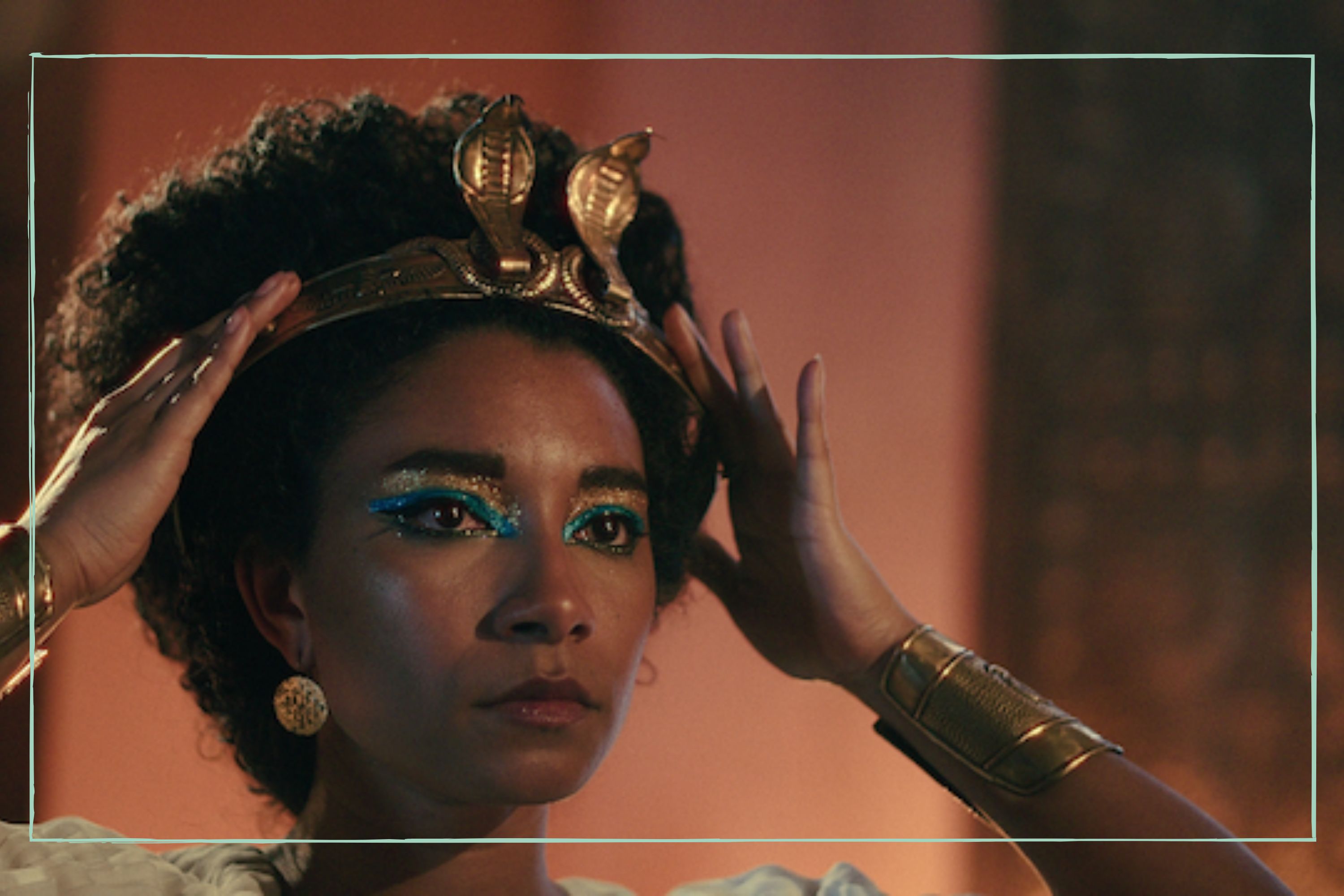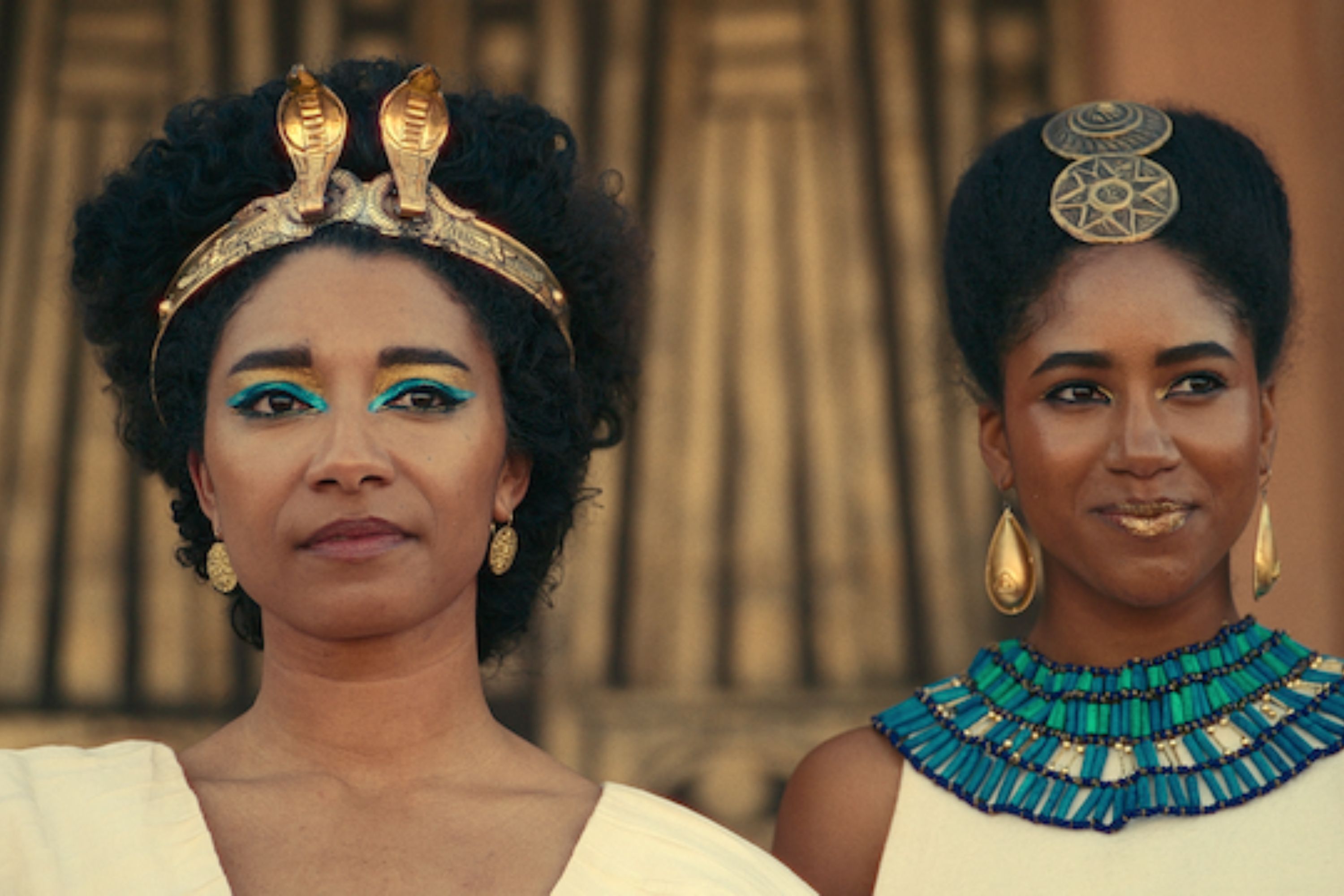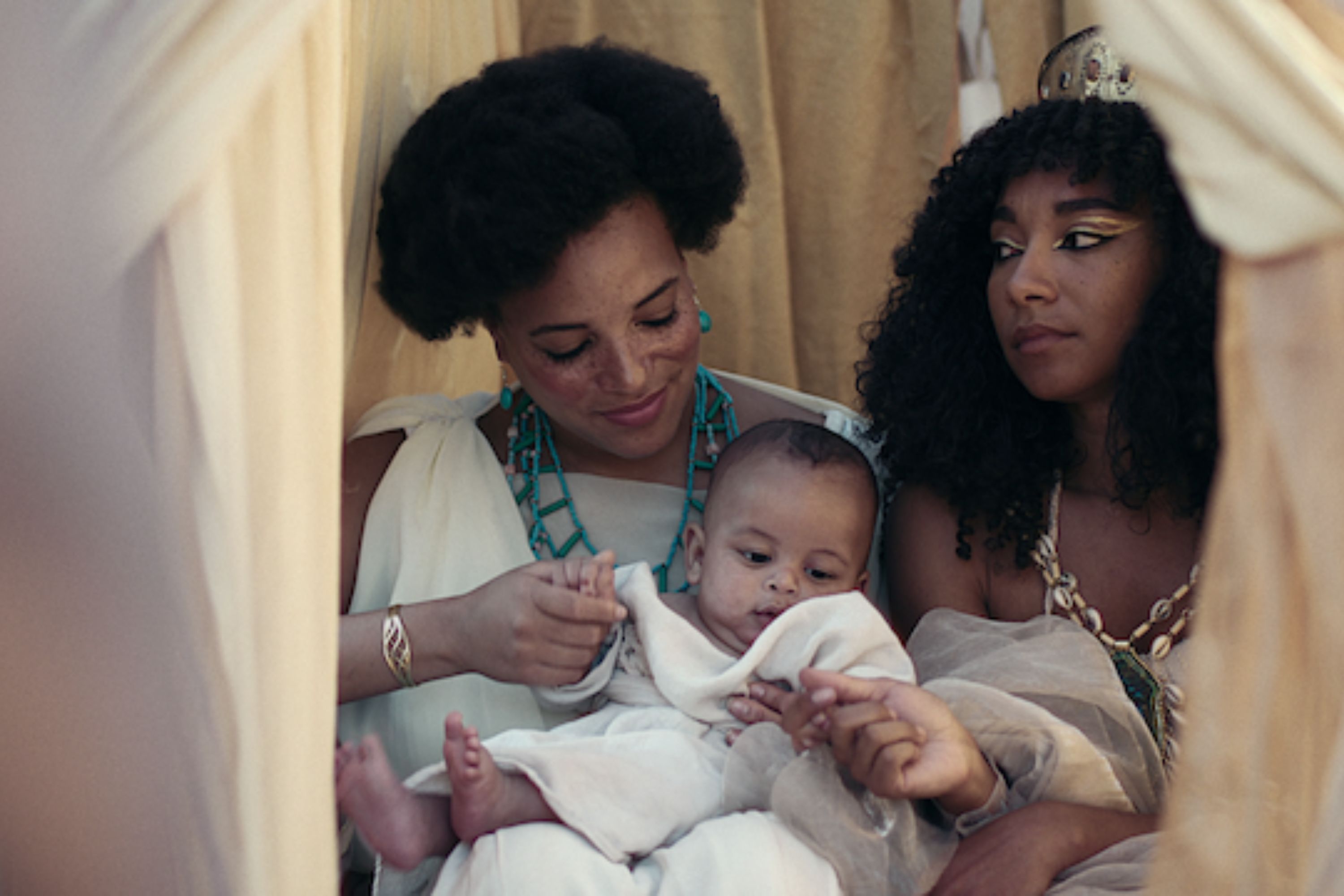Cleopatra origin: Why is Netflix's Queen Cleopatra so controversial?
What is causing a rift between nations and historians?


Jada Pinkett Smith is behind a new Netflix docuseries looking at the life of the infamous Cleopatra - but people aren't talking about the things the series intended.
From May 10, a 4-part docuseries on Netflix will be examining the lives of prominent and iconic Queens. Cleopatra takes centre stage in Queen Cleopatra, as one of the world's most famous and powerful Queens of them all. Proving that women suffer similar fates through generations, instead of focusing on the achievements of a daring queen, history has instead chosen to remember Cleopatra for her reported beauty and relationships - totally overshadowing her intellect. With her story constantly embellished and rewritten, the series aims to take another look at her fascinating and often misunderstood story. There are already controversies surrounding the documentary series, and the questions it raises surrounding her origin and heritage, which we will explore here.
The Lewis Capaldi Netflix documentary takes an uncomfortable look at the price of fame and the impact on mental health. Another musician has entered the documentary ring, with Ed Sheeran's The Sum of It All offering more insight into his personal life than has ever been revealed before. Dame Deborah James' Bowelbabe meanwhile, gives a heart breaking glimpse into the life of the activist who encouraged a nation to check their poo.
Cleopatra origin: Where was she from?
Historians have long argued about Cleopatra's origins, with some believing she was Egyptian, and others arguing she was Greek.
While she was ruling, the population of Egypt was likely to be multiracial, and her race was not specifically documented - her maternal and paternal identities remain unknown, making it difficult to confirm where she originated from. According to the History Channel, Cleopatra was definitely not Egyptian, tracing own origins to Macedonian Greece and Ptolemy I Soter, one of Alexander the Great’s generals.
Studying a huge amount of sources and available evidence, Oxford University Press concludes the biggest possibility suggests Cleopatra was more Macedonian Greek than any other heritage. But probability remains that she had some Egyptian blood, but nobody can verify how much - she was fluent in the language suggesting a familial link to the country.
The best guess is that she would have been no more than half Egyptian, and likely less. Historians believe she was possibly three-quarters Macedonian Greek and one-quarter Egyptian.
Parenting advice, hot topics, best buys and family finance tips delivered straight to your inbox.
Those behind the series had this to say, when speaking to Netflix Tudum: "The aim of African Queens has always been to uncover the hidden histories of powerful women from the past and what made them leaders that we still talk about today.
Working with leading historians and experts including Shelley Haley (Professor of Classics and African Studies, Hamilton College) and Dr. Sally-Ann Ashton (Cleopatra scholar), we explore Cleopatra's story as a queen, strategist, ruler of formidable intellect as well as a woman whose heritage is the subject of great debate.
Her ethnicity is not the focus of Queen Cleopatra, but we did intentionally decide to depict her of mixed ethnicity to reflect theories about Cleopatra’s possible Egyptian ancestry and the multicultural nature of ancient Egypt."

Why is Netflix’s Queen Cleopatra so controversial?
The series has caused controversy due to some Egyptians believing it appropriated their culture and rewrites history, by using a Black actress to play Cleopatra.
According to the BBC, Egyptologist Zahi Hawass has filed an official complaint against Netflix for depicting Cleopatra as Black, suggesting the series attempts to "erase the Egyptian identity." He is alleged to have added the Queen would have been "light-skinned, not black," insisting "Netflix is trying to provoke confusion by spreading false and deceptive facts that the origin of the Egyptian civilisation is black."
The series producers have responded by saying the casting is a nod to "the centuries-long conversation about the ruler’s race." As The Guardian's Leila Latif rightly concludes, "Cleopatra’s precise skin and hair texture are up for speculation, but to default to whiteness is insidious and ridiculous. Cultural acceptance of an image of a beautiful white woman with a straight jet-black bob does not make it a fact, as her portraits of the era are limited to the sides of coins, and tales of her stunning looks were written hundreds of years after her death."

Who is playing Cleopatra
Cleopatra is played by British actress Adele James.
Speaking to Glamour about the controversies surrounding her role in Queen Cleopatra, Adele said "I think I have every right to have a shot at humanising this incredible woman. We all put our blood, sweat and tears into that show, and I think anybody else has as much of a right as anybody else to have a go at it because we just don't know.
But I guess my main thing is that there is no circumstance under which it is acceptable for anybody to treat me or anybody else the way that I and the cast and crew have been treated since the announcement. The death threats that I've received, the racist comments, it's just the vitriol. It's not necessary, and it's very harmful. I feel very sad for people that they would do that to someone they don't know or to someone they know."
She later spoke of the unfairness of the world, and her hopes that she can one day be seen as the person she is, and not just the colour of her skin. She said "I am racialised as Black by many people, and I don't have a problem with that. But for myself, I recognise that I'm just wholly me, and I don't deny my mum's side of the family any more than my dad's, despite how other people may perceive me. But the world is an unfair place, I think, for anybody who is not white. That's really sad."
A post shared by Adele James (@adele_jjames)
A photo posted by on
Queen Cleopatra: Reviews
Early reviews for Queen Cleopatra have been mixed.
Anita Singh from the Telegraph offered 2 stars. Her thoughts were "Bold claims and an over-abundance of former soap stars make this new drama documentary a misfire."
Romey Norton from Ready Steady Cut added "Reenactments to support their words works, but when there are full scenes of drama between the actors, this is where the historians’ interjections disrupt the drama and break the rhythm. In this series, the hair and makeup are very plain and underwhelming."
Leila Latif from The Guardian offered 3 stars. She concluded "Even when faced with hordes of angry citizens or soldiers that clearly amount to little more than a few dozen extras, James maintains an air of a leader commanding thousands. Her portrayal keeps the programme’s energy alive and interesting for those familiar with the history, even though it’s aimed at those with only cursory knowledge of it. It conveys why Cleopatra is still a household name in 2023, and how complex and extraordinary her life was. Sadly, those who can only see this story in black and white have missed the point."
Related Netflix Features:
- Is Queen Charlotte in Bridgerton based on a real Queen?
- Where was Queen Charlotte: A Bridgerton Story filmed? Locations featured in the Bridgerton spin-off
- Will there be a season 2 of The Night Agent? Future of the Netflix thriller confirmed
- Is Netflix's Obsession a remake of Damage?
- Who stars in Obsession on Netflix?
- Where is Obsession filmed? Locations of the steamy Netflix drama
- Obsession ending explained: What happens to Anna and William?
- Firefly Lane season 2 part 1 recap
- Firefly Lane ending explained: Everything that happened in the season 2 part 2 finale
Video of the Week

Lucy is a mum-of-two, multi-award nominated writer and blogger with six years’ of experience writing about parenting, family life, and TV. Lucy has contributed content to PopSugar and moms.com. In the last three years, she has transformed her passion for streaming countless hours of television into specialising in entertainment writing. There is now nothing she loves more than watching the best shows on television and sharing why you - and your kids - should watch them.